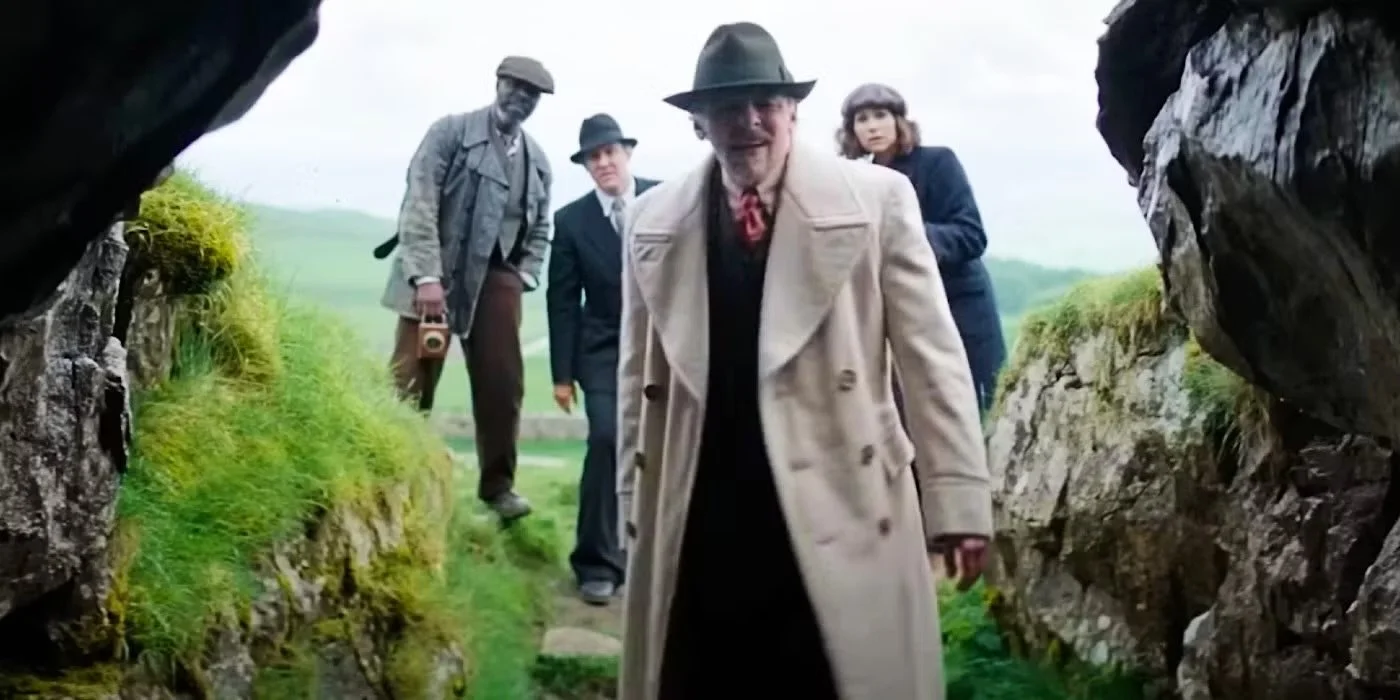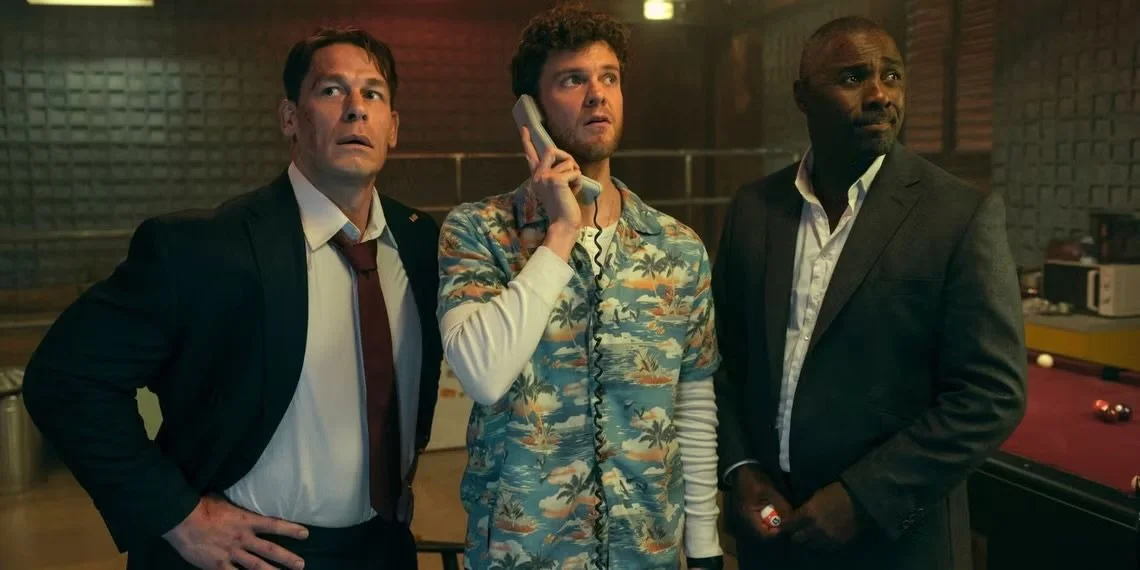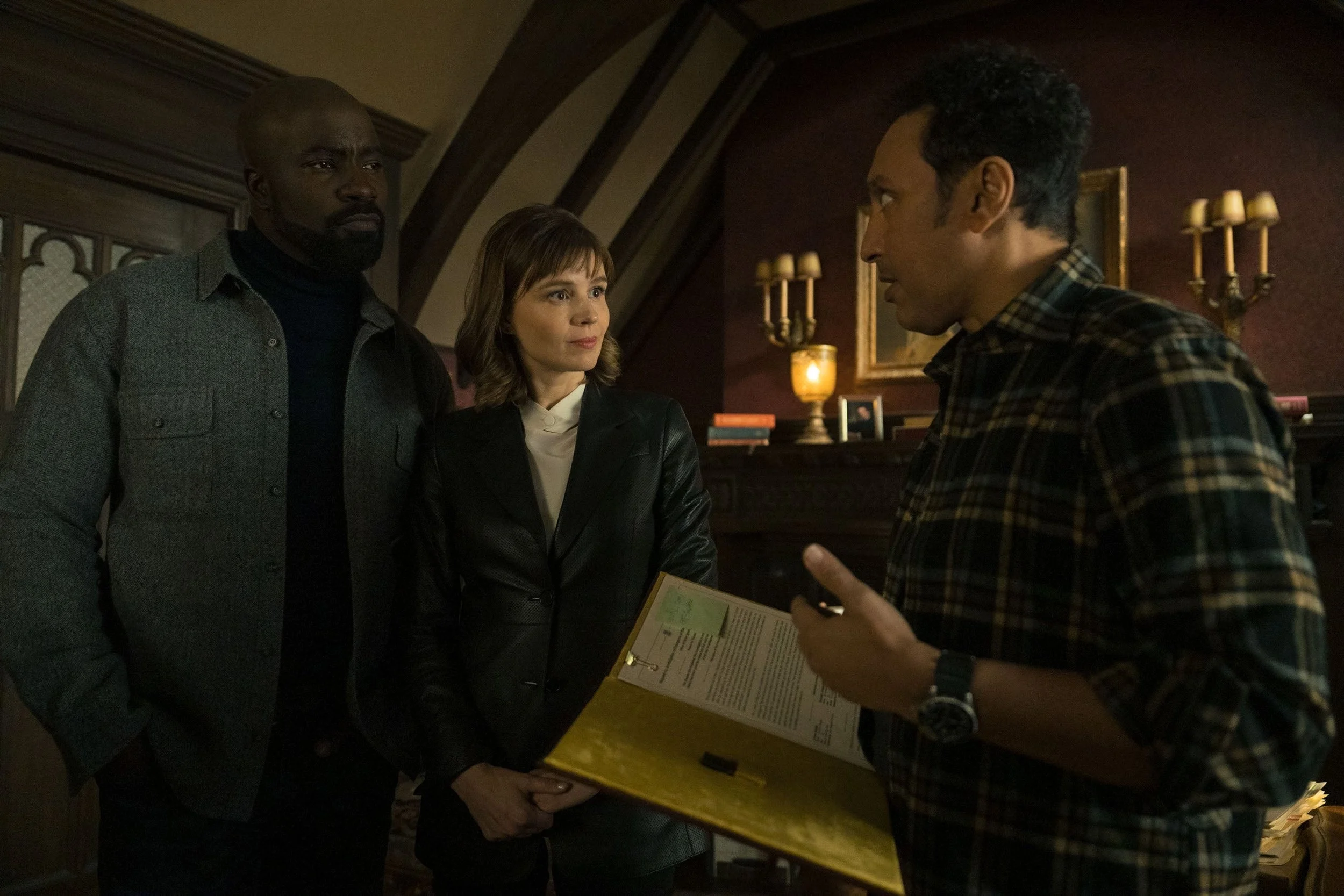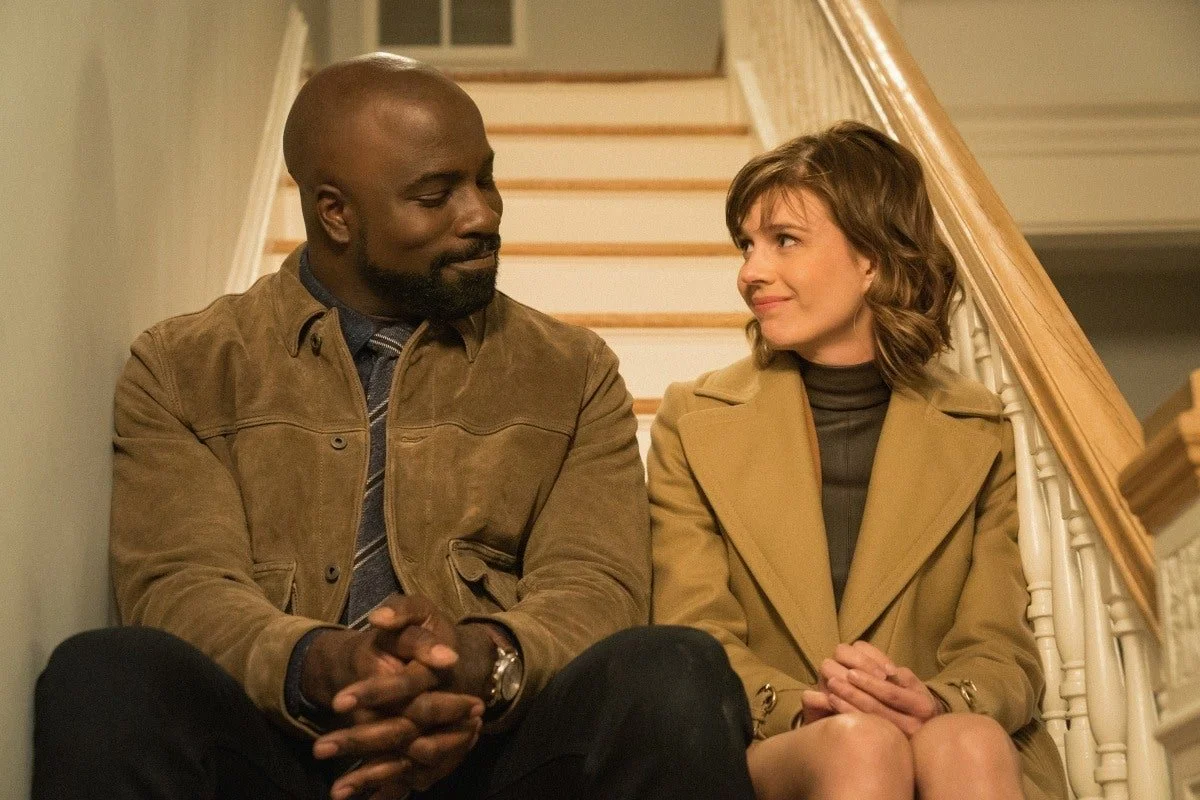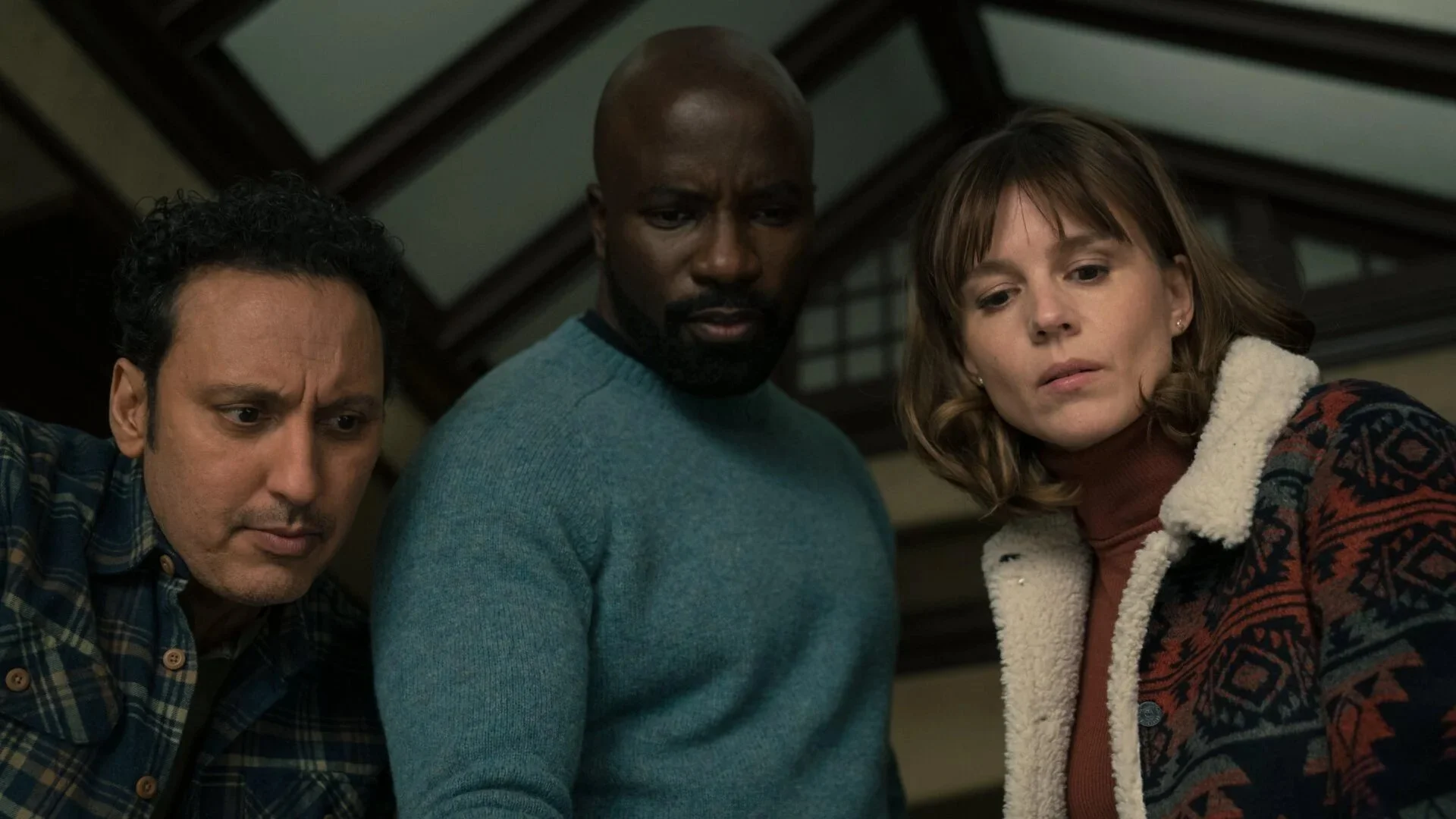Animals can’t talk, right? I mean, a few can, birds mostly mimicking our speech, but it’s not like they’re out there having conversations in English with each other. So when you hear about an animal that can, you’re probably going to pull a Charlie Cale on the claim. But in the 1930s, this caused a legend to be born and nearly a century later in 2023, someone made a movie about it. And then I watched it.
Nandor Fodor and the Talking Mongoose (or The Case of the Talking Mongoose if you’re looking it up on Rotten Tomatoes to see its 44% critics rating and 58% audience score) is a movie about just that. Real life Hungarian-American parapsychologist Nandor Fodor receives a letter from another parapsychologist who has investigated the case of locals in village on the Isle of Man who claimed that there was a talking mongoose living primarily on the farm of the Irving family and that it was an Earth spirit—or something otherworldly, at the very least—called Gef (pronounced Jeff). Very few people have seen it, but many have heard it. And for some reason or another, they’ve come to believe in his existence, even though the Irving family’s only daughter just happens to be an accomplished ventriloquist. When this comes across Dr. Fodor’s desk, he’s intrigued enough to journey out to the Isle of Man at the behest of his former colleague to see what’s up.
Accompanying Fodor, played with a curious case of an accent by Simon Pegg (Hot Fuzz, Shaun of the Dead), is his trusty assistant Anne, played by Minnie Driver (Good Will Hunting, Will & Grace), who not only manages just about everything for him, but also has adopted his way of thinking. But I’m getting ahead of myself.
The movie opens on VO and vintage-style footage about the earliest reports of talking animals and species of animals, mostly birds, that can speak or make noises that sound human. It gave strong Wes Anderson vibes before transitioning to an interview with Fodor where he discusses his profession. You see, as a parapsychologist, he looks into things like ghosts other claims of the paranormal, like Oh No Ross and Carrie but with more hats. He was a skeptic, which is why his former colleague Dr. Harry Price, played by Christopher Lloyd (Back to the Future) has distanced himself from him, wanting only to meet in a place where they wouldn’t be seen together—apparently Fodor’s scientific approach to the paranormal left a bad taste in the mouth of his colleagues. So, as he’s explaining this approach and this concept to the interviewer, he describes a man that he can see in the studio with them. A man that no one else can see. As he describes him in more and more detail, he tries to answer the question asked to him—are ghosts real? Which then turned into a question of what is real in the first place—if someone experiences something, is it real to them even if it isn’t objectively real? And this is where the movie introduces its thesis statement, its main theme. Objective and subjective reality.
Fodor—and Anne, of course—believe in an objective reality. One that can be defined scientifically, by scientific methods, repeatable and provable phenomena that can be experienced. They believe in what can be proven, not just what is told to them There is a moment, when they reach their destination on the Isle of Man, when Anne tells this to a man called Maurice after he tells his tale of meeting Gef for the first time after his wife’s funeral, and he remarks that is as sad a story as his own. Living in a world where the only things you believe in are the things you can prove, he felt, made the world small. Is it belief—faith, really—that gives the world wonder? In that moment, it didn’t feel about religion; in fact, religion isn’t mentioned at all in the movie, outside of some allusions to the afterlife, especially in regards to Harry Houdini’s quest to find a real psychic or medium and the message he supposedly gave to his wife after his death. But it certainly adds something to your subjective reality when you believe in the paranormal or superstitions. Personally, I don’t. It made me wonder, is this something we need? Is experienced, objective reality not enough for us? Do we need to keep looking for unicorns when we have rhinoceroses? And those are the questions Nandor Fodor keeps asking.
Upon arriving at the Irving farm, Fodor is informed that once the Irvings told Gef that he was coming, Gef scarpered, saying that he knew he was real, so he had no need to prove it to anyone else. They go through Gef’s haunts trying to find him, from one of his favorite spots to another, leading them up to a cave where Gef is said to hang out and hide objects that he steals from the townspeople. Alas, he is nowhere to be found, and Fodor returns to the Irving farm feeling a bit silly, being asked to yell into an empty cave that he believes in a talking mongoose and that he would like to speak to him. At the farm, Anne has an encounter with Voirrey, the Irvings’ ventriloquist, who was singing in her room and throwing her voice; at least that’s what Anne thought at first. After a conversation with Voirrey about throwing your voice, she’s directed to a hole in the wall (which are all over the Irving house; Gef supposedly lives in the walls and communicates through the holes). The experience leaves Anne visibly shaken. Something has changed with her.
Then, after all that, Fodor is awaken in the middle of the night by Maurice, who is the mayor of their little town, by the way, to tell him that there’s a call for him. When he reaches the phone, he’s greeted by the voice of Gef (voiced by a man who does not deserve mention), who speaks largely in riddles and then tells him something that he couldn’t know. That no one could know who was still alive but Fodor alone. This greatly distresses Fodor, because it spoke directly to his deep regrets. Gef then invites him to the Irving farm to ask him a question. So when they trek back up to the farm the next day, he sees a group of people who also received a phone call from Gef and also were told a piece of information that no one could know—secrets, old nicknames, that sort of thing. When Fodor confronts Gef about what he said, Gef speaks in more riddles, leading to a man fainting and then Gef running off again, nary a tuft of fur left to see. Curiously, the ventriloquist daughter is nowhere to be found, falling just too ill to be there on that day.
Admittedly, not that much more happens in this movie that I can tell you about without spoiling the whole thing (I may have already said too much; the danger of trying to describe a movie where not much happens), but while it had its issues and I can understand why it didn’t really connect with audiences or the critics very well, I did find something here and it left me asking myself some questions with incongruous answers. I consider myself a rational person, I don’t believe in the paranormal or anything like that (though, of course, nothing against you if you do, just my personal feelings), but I also don’t like watching recorded sporting events because it feels like my cheers from my sofa can’t reach Liverpool if they’re not only playing all the way in England, but also in the past. I mean, I am a pretty big fan, but I don’t think I’ve cheered so hard at something as to break through the fabric of time and space. Not yet, anyway. But still, this little superstition holds firmly in my mind. At the end of the day, Nandor Fodor is another comedy that lacks laughs, though I’m not even sure calling it a comedy, even a dark comedy, is appropriate, just because it’s stylistically idiosyncratic. Very little is played for comedy and I didn’t laugh or even chuckle once through the whole movie, but it managed to make me feel something and it got me thinking, even pushing me to the dreaded introspection, and for that, I very much found this movie to be worth my time.
Yes, it’s a quietly quirky movie that would probably have been more successful as a narrative if it were helmed by a name like Wes Anderson or Rian Johnson or Sofia Coppola, and it’s a deeply flawed film, but it managed to move me. Don’t get me wrong, it has some serious pacing issues that make its relatively compact 1 hour, 37 minute runtime feel fairly inflated. While any movie needs setup—the meeting between Fodor and Price being crucial to Fodor’s emotional journey through the film, it takes about half an hour for Fodor and Anne to even get to the Isle of Man, let alone actually get a glimpse of the magical mongoose himself. The opening scene with the voiceover and brief history of talking animals could have been cut completely and the movie would have lost nothing, with perhaps those minutes being spent going deeper into characters, especially Anne, who struck me as the most interesting character in the film and could have used some more fleshing out. That said, this movie is decidedly up my alley—an offbeat, meandering film where not that much happens but leads to the kinds of thoughts that leave you awake at night, starting at your ceiling, with a curated aesthetic and a boatload of European charm is aimed exactly at me. That’s why it piqued my interest in the first place. Gef seems to come to people at times of extreme emotion, particularly grief and regret—Maurice’s wife’s funeral, Fodor’s relationship with his deceased father—and it feels allegorical to people finding what they need in hard times to get through them.
And I’m a huge Simon Pegg fan—I’ve seen Hot Fuzz more times than I can count, his addition to the Mission: Impossible franchise made me nearly leap out of my seat in the theater, and I even enjoy comfort watching Paul, which is not a good movie. So this is very much my kind of film. At one point, a character who doesn’t believe in Gef’s existence gets into a heated argument with Fodor, asking why he can’t just let people believe what they want to believe if it makes them happy and it left me wondering. Is it better just to let people have their subjective realities, to allow themselves to see ghosts in reflections and tricks of the light, to believe that our life here isn’t all we have, to believe that the ones we’ve lost are still somewhere for us to find? Or is it better to live in the objective reality, limiting ourselves to what we can touch, taste, feel, and prove? Like most things in life, it’s probably somewhere in the middle and, again, like most things in life, finding balance is key, because we know from experience that extremes are bad. Nandor Fodor poses the deep question, albeit clumsily at times, what if this is all there is? What if there is no afterlife, no mysticism, nothing but the time we have here while our eyes opens and close? If so, all that marks our existence are the things we leave behind and those who are there to remember us and the things that we are remembered for.
While this is a movie that has more than its fair share of issues and won’t be for everyone, I still found something here. I found some value to the questions the film poses, even if it doesn’t pose them in a terribly skillful manner. Absolutely Hamilton gets at its points better when it comes to the meaning of legacy, most definitely The Brothers Bloom is more successful in its storytelling, but something about Nandor Fodor worked just enough for me and made me feel like I had to tell you about it. Streaming on Prime Video, it might just be worth a look for you too.



